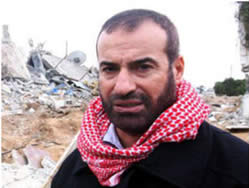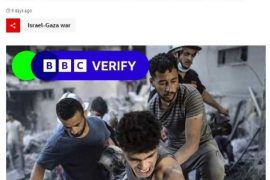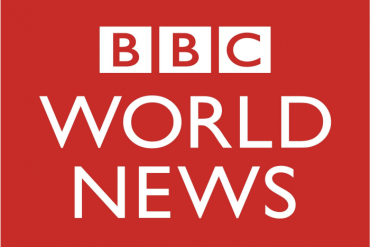h/t SS
In May of this year we documented corrections made to six items of BBC content which inaccurately claimed that the International Court of Justice had found South Africa’s allegation that Israel is committing genocide in the Gaza Strip to be “plausible”:
BBC UNABLE TO REPLY TO A COMPLAINT ABOUT ITEMS IT ALREADY AMENDED
In June the BBC had to issue a correction to another item promoting the same erroneous claim:
BBC ISSUES BELATED CORRECTION ON INACCURATE ICJ CLAIM
It is nevertheless obvious that despite those corrections – and notwithstanding the fact that the BBC had aired an interview with the court’s former president explaining the issue in April – the message has not trickled down to BBC staff.
The September 13th edition of the BBC World Service radio programme ‘Newsday’ included an item (from 12:56 here) introduced by presenter Victoria Uwonkunda as follows: [emphasis added]
Uwonkunda: “Now the row over Israel’s airstrike on a Gaza school on Wednesday continues. It killed 18 people including United Nations workers. The UN has condemned the deaths of six of its staff members and said the strike was a violation of international humanitarian law. The Israeli military says half of those killed were armed Hamas members. So is such an attack a clear-cut case of violation of international law in a war? I’ve been speaking with Michael Lynk, professor emeritus of law from the Western University in Ontario, Canada. He’s also the former United Nations special rapporteur for human rights in the occupied Palestinian territories between 2016 and 2022.”
Significantly, given her citation of UN statements, Uwonkunda failed to clarify that while indeed the IDF did state that nine of the eighteen people said to have been killed in that strike were Hamas operatives, it also showed that three of the nine were UNRWA employees. Neither did she bother to inform her listeners that the use of a civilian facility such as a school for military purposes means that it is a legitimate target.
Uwonkunda also failed to comply with BBC editorial guidelines concerning ‘contributors’ affiliations’ by informing her listeners that the neutral-sounding “professor emeritus of law” to whom the BBC was about to provide a worldwide platform is in fact a long-time anti-Israel activist whose appointment to the role of UN special rapporteur in 2016 was questioned by the Canadian government and who has described Israel as a “covetous alien power”.
During that item, Michael Lynk opined that Israel’s operations in the Gaza Strip have gone “beyond a red line” [emphasis in the original], adding:
Lynk: “…we have not constituted very efficient or very widespread legal mechanisms to bring violators of human rights law to account.”
Uwonkunda then asked [15:26]:
Uwonkunda: “What will it take to make sure that then that mechanism is in place for future generations?”
Lynk: “Well we have the beginnings of this now. We’ve had three different legal actions that are going on in the Hague. We have the South African application at the International Court of Justice where South Africa is claiming that Israel is in violation of the Genocide Convention of 1948. The International Court of Justice has said that South Africa’s made a plausible case and we will likely have a full hearing on this issue sometime in the next two years.” [emphasis added]
Already in April the former president of the ICJ Joan Donoghue had told the BBC’s Stephen Sackur that was not true:
Sackur: “…would it be fair to say that the key point — that you made your initial order and ruling upon — was whether or not there was a plausible case that should be taken on by the court of genocide in the case of Israel’s actions in Gaza after October 7 — and you quite clearly decided that there was a plausible case? Is it right to say that’s at the heart of what you decided?”
Donoghue: “I’m glad to have a chance to address that because the court’s test for deciding whether to impose measures uses the idea of plausibility — but the test is the plausibility of the rights that are asserted by the applicant, in this case South Africa. So the court decided that the Palestinians had a plausible right to be protected from genocide and that South Africa had the right to present that claim in the court.
It then looked at the facts as well. But it did not decide — and this is something where I’m correcting what’s often said in the media — it didn’t decide that the claim of genocide was plausible.
It did emphasise in the order that there was a risk of irreparable harm to the Palestinian right to be protected from genocide. But the shorthand that often appears — which is that there’s a plausible case of genocide —isn’t what the court decided.”
Nevertheless, Uwonkunda failed to challenge her interviewee on that point, meaning that her listeners worldwide were deliberately misled. Lynk continued:
Lynk: “Secondly, we have another separate ruling from the International Court of Justice in July – an advisory opinion asked of it by the UN General Assembly – which says that the Israeli occupation is unlawful and that Israel must leave the occupied Palestinian territory completely and as rapidly as possible.”
Uwonkunda refrained from informing her audience that the ICJ advisory opinion issued in July is non-binding or that after the end of his tenure as ‘special rapporteur’, her interviewee was involved in preparations by the “Permanent Observer for the State of Palestine” at the UN ahead of that case.
Once again we see how the BBC’s repeated failure to comply with its own editorial guidelines on the issue of ‘contributors’ affiliations’ compromises audience understanding. Information about Michael Lynk’s record as an anti-Israel activist – of which the BBC is surely aware – would have enabled listeners put his opinions and claims into context – including those on the topic of “respected counts of the death toll”.
Additionally, once again we see that the fact that the BBC has previously had to publicly correct a particular inaccuracy following complaints from members of the public is absolutely no guarantee that the same inaccuracy will not appear again in BBC content. If, as in this item, an issue as central as false representations of a court’s decision reappears despite multiple corrections, then clearly the BBCs corrections procedures do not meet their purpose.
Related Articles:
BBC IGNORES UNHRC’S NOMINATION OF CONTROVERSIAL OFFICIAL
THE PARTIAL SOURCES BEHIND ANDREW MARR’S BBC ONE TALKING POINTS
THE LATEST CHAPTER IN A CAMPAIGN UNCRITICALLY AMPLIFIED BY THE BBC






The IPC (aka BBC) will use any accusation dreamt up by Iran to demonise Israel. Yes – Israel is genociding Palestinians in Gaza by giving them anti-polio vaccines to make them die of old age and is genocoding the two million Palestinians in Israel by having them live there.
BBC WS funded in part by FCDO – it acts as a mouthpiece of Lammy. His allegiances are well known to be anti Israel